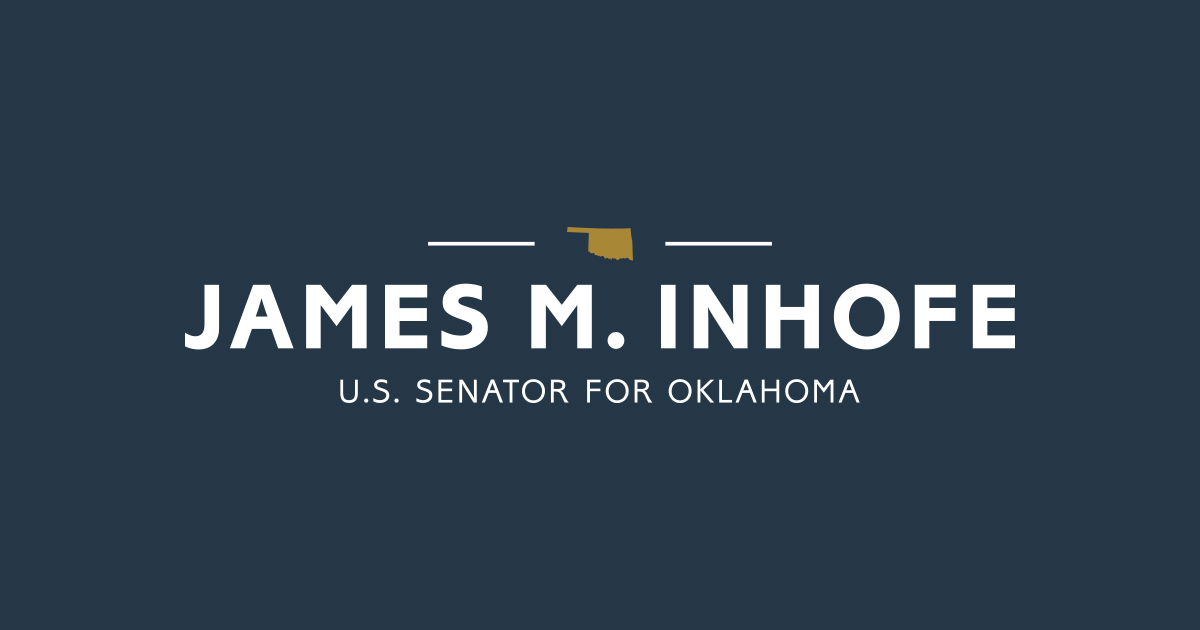Source: United States Senator for Oklahoma James Inhofe
U.S. Sen. Jim Inhofe (R-Okla.), ranking member of the Senate Armed Services Committee, today questioned nominees for top Pentagon policy positions at a committee hearing about the United States’ nuclear declaratory policy, resources to support national security objectives in Africa and the crisis at the southwest border.
Nominees included: Celeste Wallender to be Assistant Secretary of Defense for International Affairs, Melissa Dalton to be Assistant Secretary of Defense for Homeland Defense and Hemispheric Affairs, and John Plumb to be Assistant Secretary of Defense for Space Policy.
Inhofe: Thank you, Mr. Chairman. I do have a question for each one of the witnesses, and so I’m going to ask for real fast responses and try to get to all three of them. In fact, we will get three of them. Dr. Plumb, five of my colleagues and I recently sent a letter to senior administration officials expressing concern that President Biden might pursue changes to a long-standing U.S. nuclear declaratory policy, despite increasingly aggressive moves by China and Russia and clear objections that we’ve had from our allies. Deputy Secretary Hicks agreed with our conclusion at her confirmation hearing, stating, “I don’t believe that a no-first-use policy is in the best interest of the United States.” Do you agree?
Plumb: Senator, thank you. I agree with Deputy Secretary Hicks. I personally do not believe no first use is a good idea at this time, and I would say taking the allies into consideration is absolutely essential. My caveat here, of course, is declaratory policy is the purview of the President.
Inhofe: Well, yeah because I think it was very specific when she said, “I don’t believe a no-first-use policy is in the best interest of the United States.” Thank you very much.
Dr. Wallander, China is aggressively modernizing its military and expanding its presence around the world and particularly true in Africa. I can remember it wasn’t too long ago, we didn’t even have an AFRICOM, and the continent was divided into three different commands. That was not workable. We did correct that, and so we’ve gotten a lot more attention. However, China is becoming a lot more aggressive in Djibouti and other areas there. General Townsend called it the number-one global power competition concern. This has been a concern of mine for a long period of time, even at the time that we started its own dedicated command, but nonetheless, the problem is still there. And we don’t — AFRICOM does not have the capabilities and the resources to actually address this, and I think that is a problem. Do you agree that it’s a problem that we lack resources and taking care of the needs that we have in our allies in that continent?
Wallander: Senator, thank you for your focus on the issue of Chinese and Russian strategic competition. active in Africa. I share your concern. I, if confirmed, look forward to building on the existing defense and security partnerships we have with countries in Africa, and I believe it and agree with you that we need to look at the resources, especially as China has pivoted towards seeking military access and presence.
Inhofe: All the way down through — and that’s true. I may come back if I have a minute, but regardless, I look forward to visiting with you with regularity on this subject. Ms. Dalton, the year 2021 witnessed the surge in illegal southwest border crossings, and the Border Patrol recorded 174,000 encounters with illegal immigrants in November — it was a record for that month. President Biden and his spokesperson have both referred to this as a crisis, and I believe that. I agree that it is a crisis. I’d like to ask if you agree that is a crisis that we’re facing right now on our Southwest border.
Dalton: Senator, thank you for highlighting this challenge, and I agree with you that it is a serious situation on the southwest border. And if confirmed, I would look forward to working as part of an interagency effort, both in the homeland context, working closely with the Department of Homeland Security and the Department of Justice to address the challenge, and then also working very closely with our Central and South American partners upstream to address some of the drivers of migration, I think.
Inhofe: That’s fine. So you agree it’s a crisis.
Dalton: Yes, sir.
Inhofe: Thank you.
